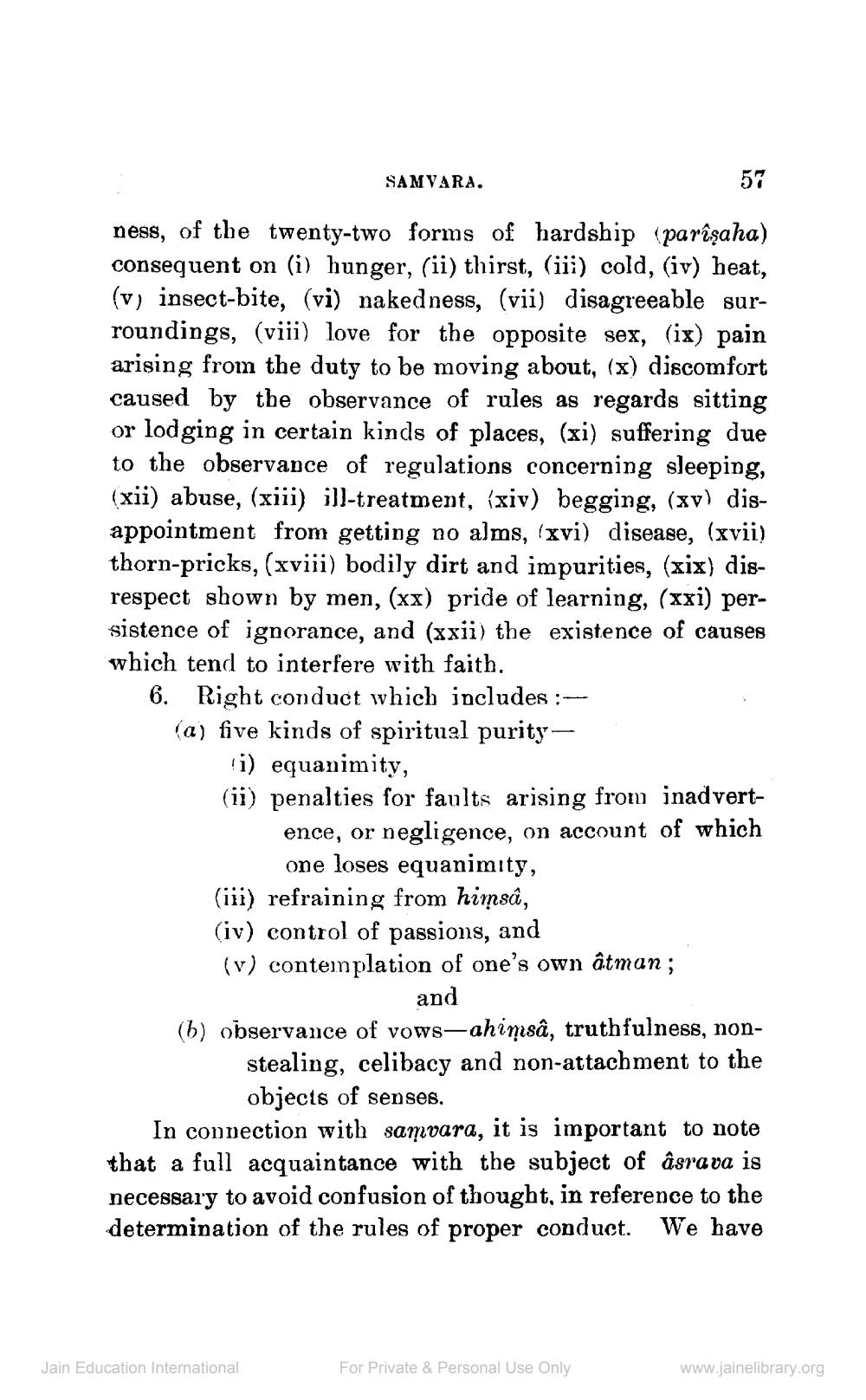________________
SAMVARA.
ness, of the twenty-two forms of hardship (parîşaha) consequent on (i) hunger, (ii) thirst, (iii) cold, (iv) heat, (v) insect-bite, (vi) nakedness, (vii) disagreeable surroundings, (viii) love for the opposite sex, (ix) pain arising from the duty to be moving about, (x) discomfort caused by the observance of rules as regards sitting or lodging in certain kinds of places, (xi) suffering due to the observance of regulations concerning sleeping, (xii) abuse, (xiii) ill-treatment, (xiv) begging, (xv) disappointment from getting no alms, (xvi) disease, (xvii) thorn-pricks, (xviii) bodily dirt and impurities, (xix) disrespect shown by men, (xx) pride of learning, (xxi) persistence of ignorance, and (xxii) the existence of causes which tend to interfere with faith.
6. Right conduct which includes:
(a) five kinds of spiritual purity
(i) equanimity,
(ii) penalties for faults arising from inadvertence, or negligence, on account of which one loses equanimity,
(iii) refraining from himsa,
(iv) control of passions, and
(v) contemplation of one's own âtman;
and
57
Jain Education International
(b) observance of vows-ahimsâ, truthfulness, nonstealing, celibacy and non-attachment to the objects of senses.
In connection with samvara, it is important to note that a full acquaintance with the subject of âsrava is necessary to avoid confusion of thought, in reference to the determination of the rules of proper conduct. We have
For Private & Personal Use Only
www.jainelibrary.org




